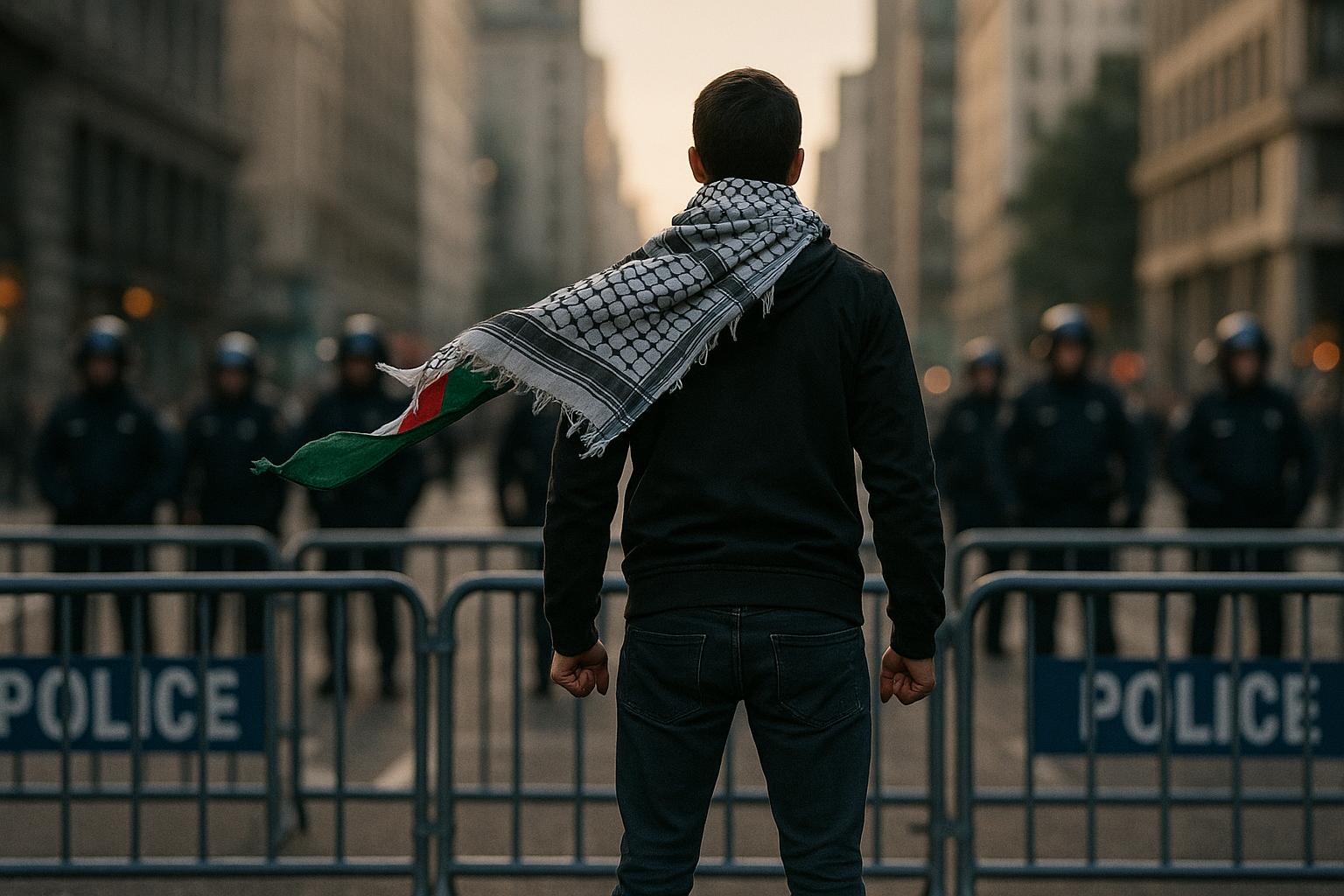Protests in the UK marking the second anniversary of the October 7 Hamas attack on Israel are proceeding despite strong government opposition and heightened security concerns. The day, which marks a tragic turning point in the Israel-Hamas conflict, has become a focal point for demonstrators expressing support for Palestine, drawing a robust response from authorities and political leaders.
The UK's Prime Minister, Sir Keir Starmer, has publicly condemned these protests as "unpatriotic," expressing deep concern about the rising tide of antisemitism he warns threatens national values. Writing in The Times, Starmer cautioned that Britain is showing troubling indifference to antisemitism, framing it as a profound societal risk. His editorial followed a series of large-scale arrests at previous pro-Palestinian demonstrations involving the banned group Palestine Action. In August and September 2025, UK police detained hundreds—over 460 in August, more than 520 later that same month, and nearly 900 in early September—on grounds of supporting a proscribed organisation. These arrests underscore the government’s strict enforcement approach to curb demonstrations linked to groups it deems extremist.
The protests themselves, often organised under banners such as Defend Our Juries, have been largely peaceful yet vociferous, with chants like 'Hands off Gaza!' and placards backing Palestine Action. Yet the authorities remain vigilant amid fears of violence, as seen with recent hate-related incidents including a suspected arson attack on a mosque in Peacehaven, England, which the Prime Minister swiftly condemned. This followed a deadly knife attack at a Manchester synagogue, illustrating the heightened tensions and security challenges within the UK amidst the ongoing conflict abroad.
Media coverage of the anniversary protests presents a varied picture. The Daily Mirror highlights tentative hope as reports emerge of ceasefire talks between Hamas and Israel, even as heavy bombardment continues in Gaza City, causing widespread destruction and civilian suffering. This more humanitarian angle contrasts with the government's hardline stance on the protests domestically.
Internationally, the anniversary has also sparked tension. Authorities in Italy banned a pro-Palestinian demonstration in Bologna over concerns about unrest and memorialising the violent Hamas attack, despite organisers’ plans to proceed regardless. Similarly, in Australia, a pro-Palestinian event in Sydney was met with sharp criticism from the New South Wales Premier, who described the timing as 'shockingly insensitive' given the loss of Israeli lives in the attack’s aftermath. These responses reflect a global unease about the potential for such commemorations to inflame sectarian divisions and public safety risks.
Meanwhile, the UK’s focus on internal security extends beyond protest policing. The Conservative government has promised intensified stop-and-search operations in crime hotspots and pledged stronger legal measures against repeat offenders. The policing and justice sectors are signalling a firm law-and-order approach amid wider societal strains linked to both domestic crime and international political discord.
Alongside these heavy political and security themes, British media have also observed cultural moments, such as tributes to Jilly Cooper, the celebrated author who recently passed away, highlighting a softer note amid the current turmoil.
In sum, the UK's observance of the October 7 anniversary is marked by a clash between government efforts to control public demonstrations tied to contentious international issues and the continuing expression of solidarity by segments of the population. This friction plays out amid wider international sensitivity to how the legacy of violent conflict is remembered and protested, demonstrating the complexities that states face balancing free expression, community cohesion, and security.
📌 Reference Map:
- Paragraph 1 – [1], [2], [3], [4]
- Paragraph 2 – [1], [2], [3], [4]
- Paragraph 3 – [1], [7]
- Paragraph 4 – [1], [5], [6]
- Paragraph 5 – [1]
- Paragraph 6 – [1]
Source: Noah Wire Services
